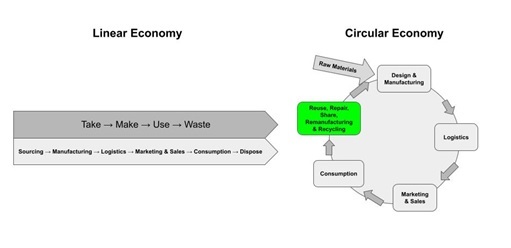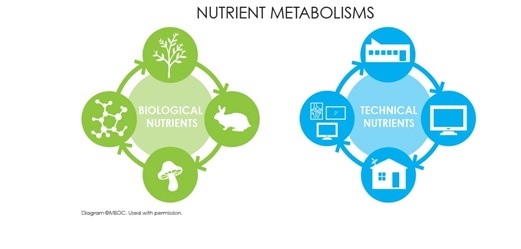The Problem
In November 2019, a survey on how people manage their waste was done by ASCOA for the population of 100 people in Buea considering the communities of Wotolo, quarter 8 great soppo, Bokoko, Bonduma and OIC Great Soppo.
The findings are as follows:
According to the research findings, the majority of the respondents fell within the age range of 36-49 (40%), followed by 30-35 (28%), while least constituted 50 and above 22 considering (56%) female and (44%) Male. Thus, women are those mostly involved in waste disposal and management at home.
What we wanted to know and what the participants responded:
Questions | Responses | Percentage | Challenge |
If the waste collection company (HYSACAM) passes by to collect their waste?
| No | 70% | Sometimes their waste has to stay for a long period at home before they dispose of it or the waste remains at the roadside which will harm the environment and create unhygienic and unhealthy areas.
|
Yes Those who said yes also indicated that: ● Rarely pass by ● Once a week ● Once a month | 30%
40% 20% 30% | ||
Where do people dispose of their waste? | ● In the rivers / streams ● On their backyards ● Beside the road side ● Make use of the trashcan placed by the waste collection company ● On their farms | 20% 18% 15%
12%
10% |
|
What challenges do people face when it comes to waste management and disposal?
| ● Long distance to travel to the dumpsite ● The time constraint to dispose at the dumpsite ● The lack of enough trash cans to empty their waste
| 42% 37%
21% | The majority of them dispose of their waste improperly behind the house, in rivers/streams, farms and some even dumped them beside the main road which tend to affect man’s health, in particular leading to many health issues we find in our society these days. |
How do people in those communities treat their waste? | ● Burning ● Distinguishing biodegradable from non-biodegradable ● Recycling and minimization of waste
| 39% 23%
20% | This directly shows that many people in theses community treat their waste by burning and from the finding, it showed that burning is the one of the best methods they know. |
Therefore, there is a need to often sensitize the local population on the different methods of treating their waste and educating them on using their waste for different purposes to their own benefits instead of burning it all the time. These methods include composting food waste and using it as manure in farms and garden areas, reusing, sharing and recycling. It is also significant to increase awareness on less consumption and production to reduce the amount of waste. Last but not least, there is a strong demand for having access to the recycling bins for the group of houses and in the dense areas in the town as well as waste collection from each house on a regular basis.
Treating of waste by burning it in a residential area as seen above causes air pollution to the environment and to man’s health. This is a garage in the middle of a residential area. So there is indeed a need to create more awareness through different means to prevent these hazards causing to the environment as well as their health without them knowing.
ASCOA believes in climate change and the negative impacts of poor waste management on the environment and society. We are keen to act locally as much as possible to be able to source and track waste and ensure the recycling, upcycling and reusing of those waste are happening in a most reliable and efficient manner.
As a result, ASCOA has a plan to:
- Educate society (especially women) about waste recycling, less consumption, sustainability and circular economy strategies
- Kick-off the project for recycling food waste and composting
- Connect and collaborate with the local council
- Expand the waste management to the other types of waste (paper and plastic) and having access to the 3 types of recycling bins (food, plastic and paper) beside groups of houses and in the dense areas in the town
- Implement future initiatives based on reusing, sharing, renting, recycling, etc.
- Decrease negative impacts on people’s health and well-being
- Reduce negative impacts on the environment and biodiversity
- Create jobs
- Develop partnerships with relevant organizations
- Enhance civil society participation and inclusion
It is an alternative to the current linear economy in which we take resources, produce, consume and generate waste. In a circular economy, systems and products are designed to eliminate the concept of waste, by enabling the recovery, reuse and repair of all materials at the highest value possible at all times. To make this happen sustainably, we need to consider all three aspects of sustainability including society, environment and economy.

It is significant to remind ourselves that every waste we produce is a resource for something else. To be more clear, “in nature, the “waste” of one system becomes food for another”. Every waste can be pulled apart and safely go back into the soil as biological nutrients, or can be reused for new products as technical nutrients without causing any pollution. (William McDonough and Michael Braungart, 2002)

Sustainability and Circular Economy Benefits | ||
Environment | Society | Economic |
● Minimizing waste and landfill activities ● Minimizing air pollution and combat climate change ● Enhancing ecological farming and as a result creating more healthy food and clean water (ending chemical fertilizers usage → decreasing N2O and CO2) ● Increasing biodiversity ● Soil regeneration by ensuring that important nutrients are returned to the soil through composing | ● Improving air quality ● Decreasing diseases such as asthma and depression ● Access to the clean areas in the town/villages ● Access to the fresh and healthy food due to the use of organic composting in the farmlands/agriculture areas ● Decrease in health risks for employees of waste management and chemical companies as well as people living close to landfills ● Improving resource productivity in cities by reusing and keeping products in cycles without generating waste ● Enhancing social cohesion and inclusion ● Enhancing social participation | ● Saving money by diverting waste from landfill ● No need to buy expensive and harmful chemical fertilizers for the agriculture ● Job creation ● Earning money through reselling what we nowadays call waste ● Less public resources invested in waste management ● Citizens can save money by sharing, renting, acquiring second-hand or repairing rather than buying first hand products
|
ASCOA'S Goal & Plan
ASCOA’s initiative will consider both the Biological cycle (bio waste such as food) and the Technical cycle, but first the focus of ASCOA will be on the biological cycle to reduce food waste.
Our Vision: Envision a town where the circular and sustainable models are implemented to minimize waste, enhance wellbeing and increase social cohesion.
Our Mission: Reduce waste to landfill through citizen participation and the support from the local council. The goal is diverting 80% of waste (food, plastic and paper) away from landfill by 2028 in southwest region of Cameroon with the aim of turning waste back into the system as a resource by reusing, sharing, upcycling and recycling.
The initiative will start with educating the communities through a variety of events/workshops and distributing educational flyers regarding different types of waste, reusing and recycling waste and the benefits of implementing sustainability and circular economy initiatives. Afterwards, ASCOA will take action and collect the food waste door-to-door for the communities in Buea and send them to the farmer areas, gardens or specific places for composting. The door-to-door collection is a pilot project which will be tested and analyzed for 3 months. By allowing biological nutrients go back into the soil, we could:
- reduce methane and carbon dioxide emission
- reduce the need for chemical fertilizers and costs
- enhance water retention in soils
- build climate resilience
- create jobs
- enhance healthy and organic food for our society
- Divert food waste away from landfill
Outline of our 2021 Project
Phase 1:
Phase 1 will be done in 6 months, expect the education and awareness which will be continued.
- Educating civil society regarding circular economy and recycling household waste.
- Education will consider all the citizens including information of the project, especially to the one who needs to recycle their food waste during those 3 months.
- Education will be focused on less consumption and production highlighting circular economy, waste management, recycling (their importance, benefits, positive impacts on people’s life and environment, etc.)
- Organizing 8 workshops for the public in different regions (e.g. presentations, watching short videos, etc.)
- Communicating the plan every months through social medias, TV, radio, newspaper, etc
- Distributing educational flyers
- Identify costs for each activities
- Share the strategy with the local council
- Select 10 volunteers for picking up waste from 50 houses
- Educating the team of waste collectors about the whole process
- Preparing enough vans for the transportations
- Prepare facilities for composting (in garden, farms or creating a place to do compost).
- Investigate propers farmland and garden areas for composting and communicate with the farmers and smallholders regarding this plan.
- Informing farmers about the plan and educating them about composting and positive impacts on their land, food and water
Phase 2:
After the 3 months of phase 1, Phase 2 will be tested for 3 months to identify opportunities and challenges.
- Collecting food waste from each house through door-to-door collection.
- Considering 50 houses in a small region.
- Collecting food waste 2 times per week
- Giving each household a gift (e.g. cookies) as a reward.
- Involving youth in this activity to let them keep track of the number of houses which waste is collected from and giving some goodies at the end of the month (e.g. sweets, pencils/notebook).
- Transferring food waste to the farm and garden areas to compost as a bio-fertilizer after each collection. As an alternative, we will create a place for composting and when the composts are ready it can be delivered to the farm areas.
- Continuing on educating and raising awareness of the project and updating information on social media and radio.
Phase 3:
The last 3 months of the year:
- All challenges and opportunities will be mapped out by ASCOA team
- Re-analysing costs for the process and each phase
- Assumptions for the next plans including identifying risks and providing solutions
- Sharing the results in public on ASCOA website and all social media channels
- Investigating prospect strategic partners
- Mapping out the list of key stakeholders to approach
- Connections with other organizations in Africa such as Nigeria and South Africa as well as other countries for exchanging informations and experiences regarding implementing circular economy initiatives
- Organizing 2 events to share and discuss the results with key stakeholders (Mayor, University professors, Researchers, CEO and key employees of relevant companies/organizations/NGOs)
ASCOA cannot achieve this without resources and funding,
Let’s Make Change Happen!